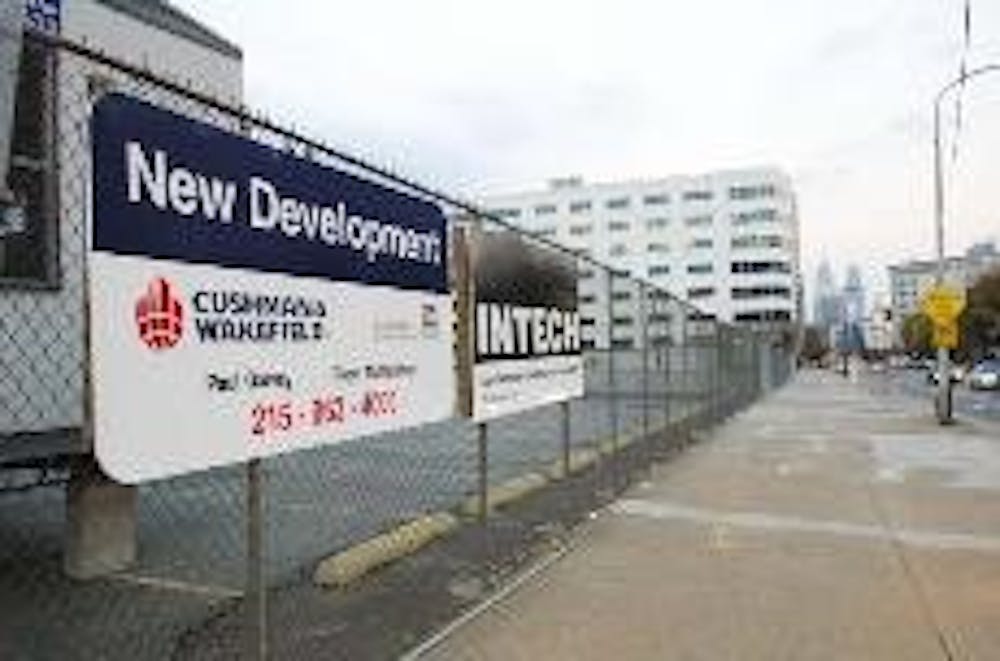
Penn is getting a new neighbor - the country's premier space for life sciences and technology companies, University City Science Center officials hope.
The Science Center is planning an expansion, and last week marked the groundbreaking of a facility at 3711 Market St.
Penn is the largest of the center's 32 shareholders for the Center.
The center currently houses companies involved in research, education or medicine, including offices associated with the University, in facilities on Market between 34th and 37th street.
President and CEO Pradip Banerjee, a Wharton senior fellow, described the center as "a complete venture ecosystem" because it provides spaces for start-up "incubator companies."
This total expansion is slated to cost $600 million, including $80 million for a building at 3711 Market that began construction last week.
This building - set for completion in early 2008 - will include retail, parking and 130,000 square feet of lab space.
In addition to these small companies, the space will also draw mid-sized companies from the region and overseas, especially from Japan, according to Science Center spokesman Richard Miller.
And while growing companies generally move out to the suburbs, the new facilities will allow businesses to stay in University City, Banerjee said.
Daniel Skovronsky, CEO of Avid Radiopharmaceuticals Inc., said his company has relocated within the Science Center a few times since its creation about 18 months ago, and would consider moving to the new facilities as it expands.
In 2005, architects created a master plan for the center by comparing it to other urban research campuses, especially those connected to the Massachusetts Institute of Technology and Harvard University, Miller said.
And the expansion will include facilities available at these schools, including residences and a hotel and conference center to allow for a "live, work and play environment," said Curt Hess, senior vice president of Real Estate Operations.
Next summer, construction for one of the five buildings, which will likely house condos, will begin at the southwest corner of 38th and Market streets.
Hess also said that the first building alone will provide about 350 jobs, and Miller said it may reduce brain drain, especially from nearby schools.
Businesses now view Philadelphia as America's next major biotechnology cluster because of its proximity to medical and research institutions such as Penn and to the majority of the nation's pharmaceutical companies, Hess said.
"Philadelphia really is a life sciences continuum," he said.
The Daily Pennsylvanian is an independent, student-run newspaper. Please consider making a donation to support the coverage that shapes the University. Your generosity ensures a future of strong journalism at Penn.
DonatePlease note All comments are eligible for publication in The Daily Pennsylvanian.








